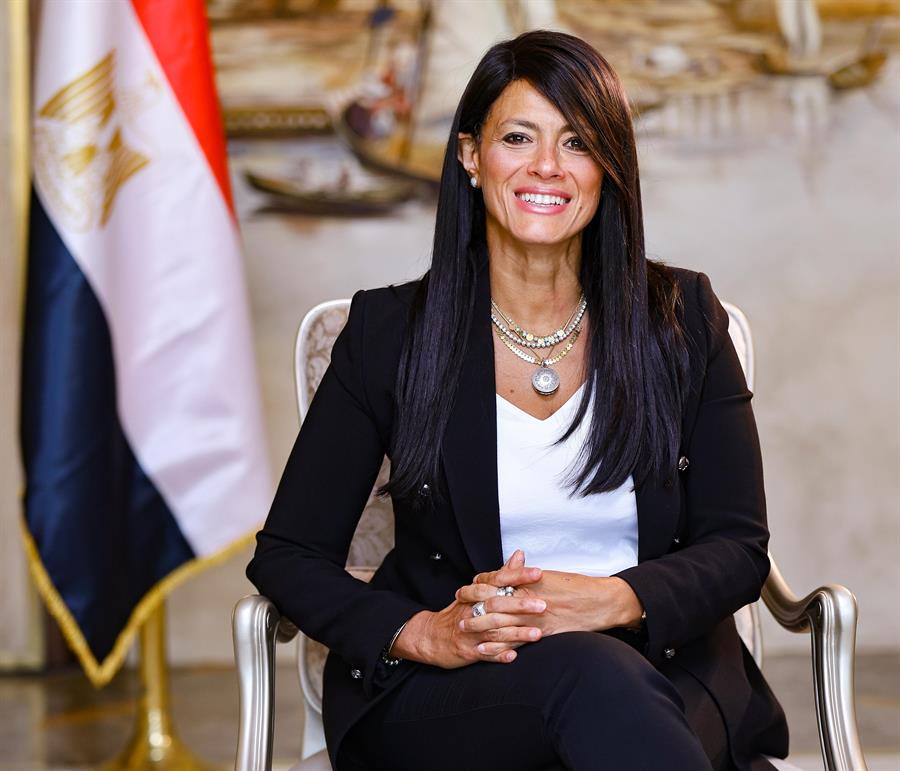Egypt’s Planning Ministry, AUC Venture Lab launch Training Program to Support Entrepreneurship

14 June 2021
The Ministry of Planning and Economic Development, represented by the “Rowad 2030” Project, announced the start of a program to build the capacities of managers of business incubators and accelerators in cooperation with the American University in Cairo -based startup incubator (The AUC Venture Lab).
This announcement came within the framework of partnership and support from (Drosos) Foundation, to share experiences and improve various support mechanisms to create diverse job opportunities and stimulate economic growth.
(Rowad 2030) project is creating some business incubators in Egyptian public Universities to create a new generation of entrepreneurs who can employ their scientific knowledge in establishing projects, communicate with young people in Egypt, providing support by developing managerial and innovative capacities, and contributing to reducing unemployment rates and encouraging young people to start their businesses.
Egypt’s Minister of Planning and Economic Development, Dr. Hala El-Said said that the ministry, represented by the (Rowad 2030) Project, supports business incubators and works to develop them.She referred to the project's contribution to the establishment of nine business incubators in some fields, including artificial intelligence (AI) and tourism, as well as the Egyptian-African incubator and the mini-factory.
El-Said explained the important role that these incubators play in supporting and protecting Small and medium-sized enterprises (SME), supporting young people and their ideas, and providing them with the necessary support.
El-Said added that the current cooperation between the Ministry and the in Cairo (AUC) -based startup incubator came intending to maximize the benefit of managers of business incubators, accelerators, and entrepreneurs involved in the AUC startup incubator.
“(AUC) -based first startup incubator is considered the first university business accelerator in Egypt, it contributes to accelerating more than 200 start-up companies and creating more than 8000 job opportunities,” El-Said explained.
El-Said indicated that the program helps participants design and establish new business incubators and develop existing business incubators and accelerators.
On her part, Dr. Ghada Khalil, Executive Director of the (Rowad 2030) Project, pointed out that the training program includes three main units that include the most important tools and methods for designing and managing models of business incubators, accelerators, and programs to support entrepreneurs.
Khalil explained that the training program builds the operational capacity of business incubators and accelerators; it also provides opportunities to unify joint efforts to create a deeper impact in the field of entrepreneurship.
Khalil added that the cooperation comes within the framework of the activities of the (Rowad 2030) project at the Ministry of Planning and Economic Development, especially Rowad Meter.
She explained that (Rowad 2030) is interested in stimulating and enriching the culture of innovation and entrepreneurship in Egypt by developing an integrated system for entrepreneurship; Business accelerators and incubators have become essential programs to support start-ups and SMEs.
"We are pleased to contribute to the development of new cadres throughout Egypt,” Ayman Ismail, Abdul Latif Jameel Chair of Entrepreneurship and associate professor at the School of Business and founding director of the AUC Venture Lab said.
He pointed out that the cooperation comes within the framework of our continuous commitment to share the experiences gained by the incubator over the past 8 years to support emerging Egyptian companies.
Ismail added that the incubator works to enrich the climate of entrepreneurship by supporting and training several institutions within the framework of continuous cooperation with the Drosos Foundation.
“The Drosos Foundation believes that creating an appropriate environment to help young people innovate and provide practical solutions to societal challenges is one of the most important foundations for sustainable development,” Wissam El Bayh, Regional Director of the Drosos Foundation said.
The Foundation is proud to support the (AUC) -based first startup incubator to enable partnerships between decision-makers and educational institutions, which pave the way for policies that support young entrepreneurs.
It is worth noting that due to the increase in the number of applicants who registered their data since the first day of the launch of the program, it was decided to hold two consecutive training sessions to ensure the quality of training according to the advanced numbers.









